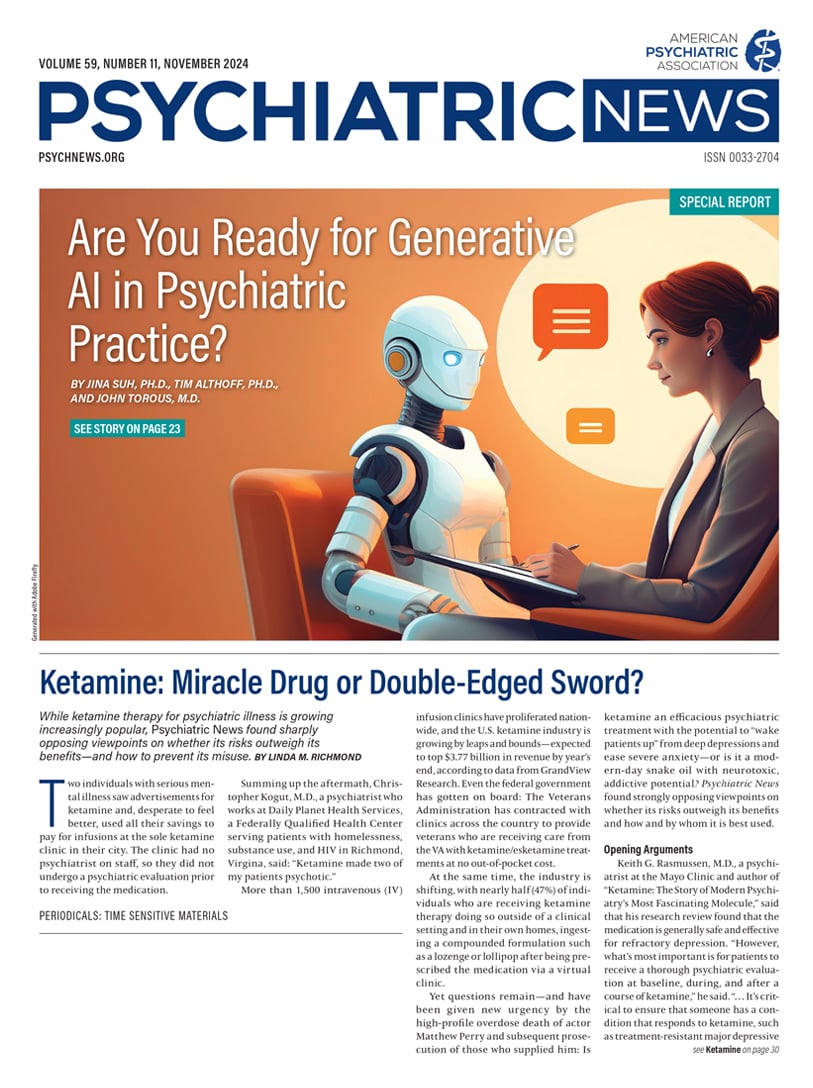A problematic situation was developing on a psychiatric inpatient unit. A patient had seriously physically assaulted a staff member over information the staff member had documented in the patient’s chart, which the patient discovered after requesting and obtaining their treatment record. The patient had asked the staff member to correct the staff’s characterization of him in the medical record, which the patient interpreted as disrespectful, demeaning, and disparaging, but the staff member refused, stating that the need for accuracy in the medical record justified her documentation. The patient had also challenged aspects of his family history as documented and asked for a correction of the record without success.
In response to the assault, other staff members have taken to providing scant documentation of shift notes in patients’ charts, leaving out vital details of events that transpired on their shift. This troubling situation is understandable even as it is quite problematic. Staff members are grappling with the reality of the day: how to document notes when you know patients have easy access to them.
From Paternalism to Autonomy
The landscape of communicating with patients was drastically different several decades ago, when there were few electronic medical records and no MyChart for patients to access their medical information in real time as soon as a clinician documented it. Back then, a patient would formally request access to their medical record in writing, after which they would wait, sometimes for weeks, before obtaining it. And even then, it was customary to redact information in the chart that the psychiatrist considered inappropriate for the patient to see. Patients did not have access to information about them obtained from another hospital but now lodged in their current record. On inpatient units, an identified staff member would sit with the patient to go over the medical record the patient had accessed. Indeed, it was the height of paternalism.
However, the 1990s heralded a new era of open communication with patients in conjunction with heightened pressure from patient advocacy groups for increased patient autonomy and decision making in their own care. The federal rule on interoperability and information blocking mandates that health care providers offer patients access to all the health information in their medical records without delay and without charge, at the risk of attracting penalties for information-blocking. The HIPPA Privacy Rule also requires hospitals and other covered entities to grant patients access to their complete medical record regardless of whether another entity created information contained in it, unless state confidentiality laws prohibit that.
There are exceptions to broad access to medical records, of course. For example, patients do not have a right to access psychotherapy notes that are primarily for personal use by the treating psychiatrist. Likewise, access may be denied if there is risk of harm to the patient or others or if information contained in the record was obtained under a promise of confidentiality.
New Ways of Documentation
That said, patients now have a right not only to prompt access to their medical records, but also to challenge what is written in them and to ask for an amendment if they believe the information to be erroneous; such a request must be complied in a timely manner, usually within 60 days. The hospital or other covered entity must correct the record as requested by the individual or formally notify the individual that the request has been denied, stating the reasons for such denial. Once the record is corrected, the hospital must inform not only the individual of this but also persons that the individual knows have the protected health information that was amended, including business associates.
This current landscape of easy access to medical records requires psychiatrists to learn new and more effective ways of documentation. In the case example described above, incomplete documentation of valuable information in a patient’s medical record has potentially dangerous consequences to the patient and others, because subsequent providers may make treatment decisions about the patient’s care on them. Rather, psychiatrists should be sensitive to the language used in describing patients, their behavior, and events happening on the unit. Language that respects the personhood and humanity of patients regardless of their psychiatric presentation, personality characteristics, or crime should always be employed even as the accuracy of the record is maintained.
The medical record is not a place for innuendos or ad hominem attacks on patients or other health care colleagues. That is contrary to the best interests of the patient and is unethical. ■

